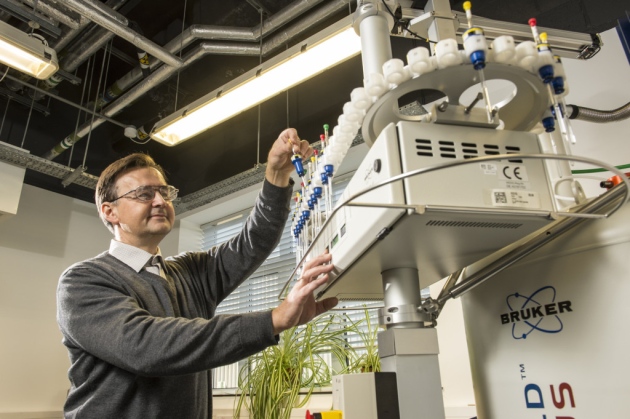
Developments for the future of wheat farming and plant-based products in medicines and manufacturing are among the projects benefiting from investment in a Norfolk science hub.
As one of the world’s foremost research institutes, the John Innes Centre has been awarded £77.9m, in a series of new strategic programme investments by the UK Biotechnology and Biological Sciences Research Council (BBSRC).
Four new strategic research programmes will be funded over the next five years, to deliver fundamental insights into plant and microbial life.
The research programmes wants to use those insights to address high-profile national and global challenges in agriculture and the environment.
The research programmes

• A Plant Health programme to tackle crop losses caused by pests, pathogens and poor nutrition, thereby enhancing agricultural productivity and reducing over-reliance on artificial agricultural inputs.
• A Molecules from Nature programme to exploit plant and microbial chemical diversity in the search for better drugs, new antimicrobial therapies and foods with enhanced nutrition.
• A Designing Future Wheat programme to address the challenge of providing an estimated 60% larger wheat harvest globally by 2050 – developing higher yielding and more resilient varieties of wheat with improved nutrition.
Prof Graham Moore, who is leading the Designing Future Wheat programme, said: “In the next 50 years we have to produce as much wheat as we have produced in the last 10,000 years. We have to do that in a changing environment, amid reduced availability of land and competition for water as well as increasing problems with diseases.”
• A Genes in the Environment programme to deploy improved understanding of environmental impacts for improved crop productivity and enhanced resilience to a changing climate.
Significant
The potential impact of the new programmes is significant.
For example, some scientists at JIC are discovering new molecules from plants and bacteria that could lead to improved medicines and ways to stem the tide of anti-microbial resistance.
Others are working towards a future in which crops are more resistant to heat, drought and disease, thus better equipped to face increased variability in climate extremes and new and re-emerging diseases.
Director of JIC, Dale Sanders said: “These new strategic programmes represent a significant investment in the future of the John Innes Centre and its world-leading scientists. We believe that the ground-breaking scientific effort launched today will have a substantial impact on national and global challenges in the years to come”.
Professor Melanie Welham, BBSRC Chief Executive said: “BBSRC’s strategic funding investments in research, people and vital national capabilities at world leading bioscience institutes will deliver new knowledge and innovation and help realise the potential of a bio-based economy.
“The positive impacts in food, agriculture, energy, materials and health will help drive economic growth and deliver benefits to society across the UK and beyond.”
